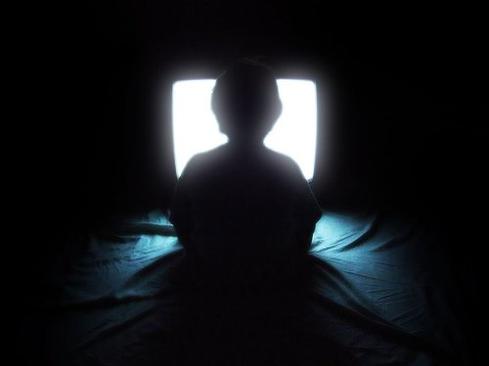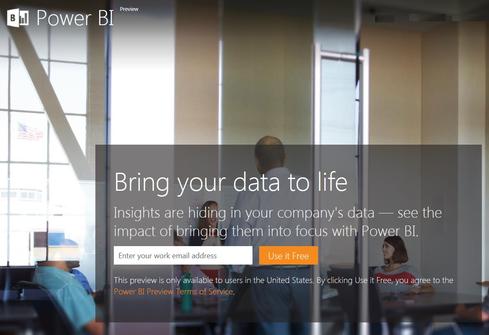Binge watching your favorite show might be a sign of depression or a lack of self-control. Or it might just mean you've got a free night.


Microsoft Power BI Makeover: 6 Big Improvements
Microsoft Power BI Makeover: 6 Big Improvements (Click image for larger view and slideshow.)
I must admit to you, friends, that when it comes to my TV watching ways, I'm a bit old school. I had cable growing up, but I still vaguely remember the three-channel TV universe. I actually used to tape things on something called a VCR. When I record on the DVR, I still say I’m "taping." I tape reruns of The Love Boat, for instance. Yes, friends, The Love Boat is making another run on cable right now. Probably literally right now.
The Love Boat is on maybe eight hours a day. You can binge watch it, but I don't. Because for me, you watch a show for an hour and then you watch a different show. Yet even with my Luddite ways, I was shocked to learn of a study that says binge watching a TV show is a sign of depression, self-medication, or a lack of self-control.
Really? Wanting to watch three or four hours in a row of Sherlock or Orange Is the New Black is a sign of depression? I assumed it just meant you didn't have a date. Sure, watching four hours of Love Boat reruns might give you depression, but it isn't a sign of it. Love Boat is a harmless show about aging stars finding love. What could be the problem?
Three researchers from the University of Texas at Austin will present their findings that it is bad to binge on your favorite shows at the 65th annual Conference of the International Communication Association. They studied 316 18- to 29-year-olds and asked them how much TV they watched, how often they felt depressed or lonely, whether they had trouble finishing tasks because they were watching TV, and how often they binge watched a certain show. They found those who were more likely to binge watch a show were more likely to be lonely or depressed and had worse self-control when it came to turning the TV off.
They also found people who binge watched were more likely to be obese and have major signs of fatigue.
Basically, binge watchers were in serious trouble.
So with all due respect to academia and those suffering from depression, I think this research is a little too serious. It is the kind of thing where you measure something for the first time and you think it is different from everything else. Here's the thing: Binging is bad. Any kind of binging. Sitting down with a gallon of ice cream is bad. Sitting down with a gallon of vodka is bad. Sitting down and watching TV for four hours with vodka and ice cream is bad. But it is a cart-before-the-horse problem.
Obviously binging is a sign of a problem. But shouldn't we be thrilled that each of these people is picking TV rather than vodka, cocaine, or a life of crime? It is absolutely a sign of self-medication. You know what happens when a couple does it on the weekend and they watch their favorite show together? It is a sign they realize they've been apart too much and they'd like to spend the day snuggled on the couch. You know what happens when an adult watches a show they enjoyed as a kid for a few hours? It is a sign they want to find a place of happiness.
Nothing is wrong with it until you do it for days and days at a time. And then the sign of depression isn't the binge watching, but the failure to live life. Sure, maybe they've found an early warning sign we should look out for.
But they've also discovered that TV doesn't work the same anymore. Watching a series in chunks was remarkably inconvenient until the invention of the DVD. Even the VCR wasn't great for it. The DVR and streaming really made it fun.
I'm sure the study is going to talk about ratio of TV watching to binge watching. I'm sure there really is some value to the study. I also know that if you can self-medicate with TV, it beats the heck out of heroin.
So the Geekend is now going to present its entirely unscientific guide to self-medication through TV. We're going to list some TV shows and we're going to tell you what problem you've probably got. Ready? Binge.
Game of Thrones. You've got family issues. You just want to know there is a family worse than yours. And there are at least five in Game of Thrones. That, or you had a wedding go tragically wrong.
Orphan Black. You're struggling with your identity. You don't feel like you know who you are. Binge watching Orphan Black might not help you figure out who you are, but it will give you an intense need to show everyone your underwear.
The Big Bang Theory. You know you are smarter than everyone else, but no one else seems to notice. Binging on The Big Bang Theory allows you to come up with all the witty comebacks you never thought of in time. Did you know other languages actually have a word for that? In French it is l'esprit de l'escalier. In German it is Treppenwitz, and in Yiddish it is trepverter. They all basically mean "staircase words." Yes, I knew this and you didn't, which makes me smarter than you. Where is your retort? You'll think of one on the stairs on the way home. Bazinga.
[Can you really compare HoloLens and Google Glass? Experts say no.]
The Americans. You feel unsettled in a post-9/11 world. You liked knowing who the "enemy" was. You also like gummy bracelets, denim for the whole body, shoulder pads, high hair, and neon shoelaces.
By the way, there is not enough of this in The Americans. The fashion seldom looks period enough. It would be even better if it looked more like The Goldbergs.
Arrow. You're convinced evil is everywhere. You are looking for a hero to save you from your paranoid feelings. But you also don't believe in modern technology like gunpowder. We're not sure who binge watches Arrow since Luddites probably don't like streaming.
Agents of SHIELD. You have an immense fear of anything making sense. You'd much rather go through your whole life never asking questions that might lead to any clarity. Facing any sort of truth or ideology, or even doing something in a logical manner chills you to the bone. Binging on Agents allows you to think of the people running the world as mere random actors who know even less about the world than you.
Friends. You're stuck in the past. All your college friends have moved on. You're lonely and sad. Your job's a joke. You're broke. You're love life's DOA. It's like you're always stuck in second gear. Like it hasn't been your day, your week, your month, or even your year. But they'll be there for you.
What do you think? Is binge watching a sign of a problem? Do you binge watch? If you do, what shows do you binge watch and who do you watch them with? Have you ever let binge watching get in the way of your life? Do you watch shows to self-medicate? Geekend wants to know.
Attend Interop Las Vegas, the leading independent technology conference and expo series designed to inspire, inform, and connect the world's IT community. In 2015, look for all new programs, networking opportunities, and classes that will help you set your organization’s IT action plan. It happens April 27 to May 1. Register with Discount Code MPOIWK for $200 off Total Access & Conference Passes.
About the Author(s)
You May Also Like







